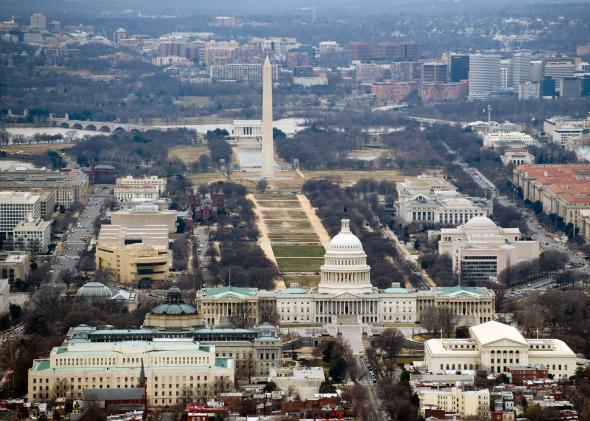Sixty-one percent of Washingtonians favor sticking with the status quo in which absolutely no buildings over 160 feet tall can be built, the vast majority of the central business district is capped at 130 feet, and the vast majority of the city is capped at a much smaller level than that.
One way of reading this poll, of course, is that Washingtonians have a deep-seated love of suburban sprawl, high tax rates, gentrification and displacement, and a lack of affordable housing. Washingtonians, perhaps, just have a very idiosyncratic view about land-use regulations that leads them to believe that buildings that grace downtown Tulsa, Okla.; Richmond, Va.; and Providence, R.I., are far too enormous for the capital of the mightiest empire the world has ever known. But I think the poll finding that’s really interesting is this one—opposition to changing the Height Act cuts across the city’s various racial and economic divides but fades substantially among new arrivals to the city.
And I think this illustrates that when it comes to land-use issues people tend to arbitrarily fixate on the status quo. Nobody in San Francisco wants to double population density to be more like Brooklyn—and that includes people who moved to San Francisco from Brooklyn and didn’t mind it when they lived back east.
Bringing tall buildings to Washington, D.C., is unpopular but no residents of cities that already have structures taller than 130 feet think it would be a good idea to dismantle them. All that said, very few people are going to embrace taller buildings in the District for its own sake. You would embrace them for the other benefits that would follow. Most immediately, skyscraper construction in the central business district would create a gusher of property tax revenue that could be used to finance sales tax cuts or new investments in mass transit and other public services. You might see something similar in New York City. Bill de Blasio has a fairly expensive progressive wish list, limited ability to raise taxes, and a population suffering from inchoate frustration with a lack of affordable housing. The solution to this is to upzone everywhere—probably an unpopular idea on its own terms, but one that would unlock a lot of appealing possibilities.
